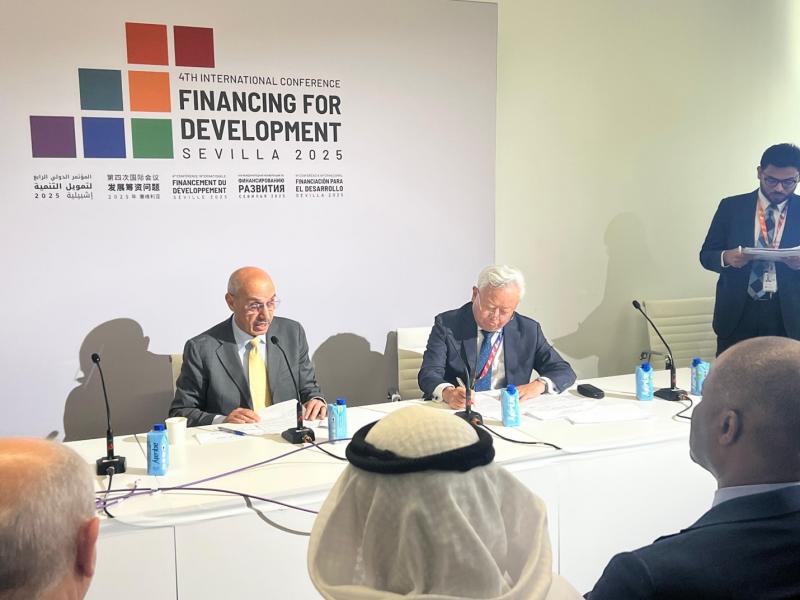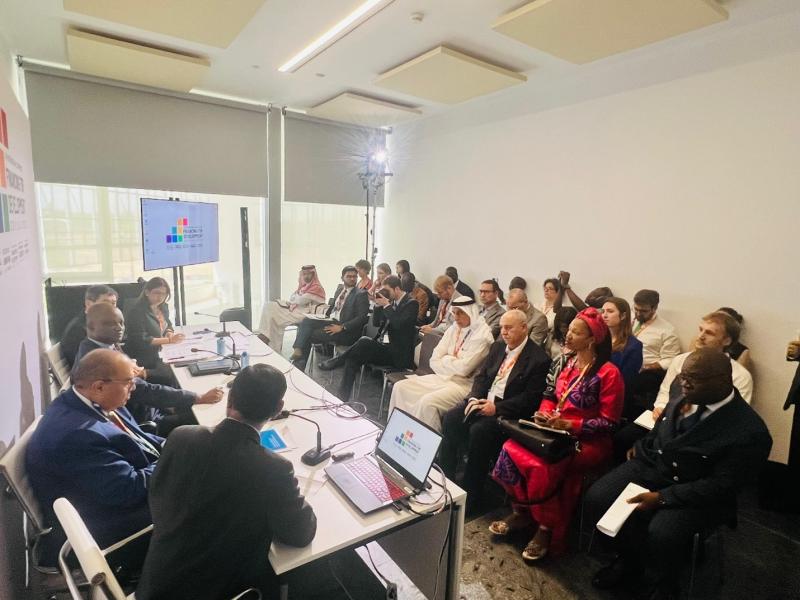Islamic Finance Recognized as a Pillar of the Global Financial System, Says IsDB Group Chairman, H.E. Dr. Muhammad Al Jasser
Seville, Spain, 1 July 2025 – Islamic Development Bank (IsDB) President and Group Chairman, H.E. Dr. Muhammad Al Jasser, strongly emphasized the urgent need for sustainable financial solutions in developing countries, highlighting the burden of rising debt and the potential of Islamic finance as a transformative tool for development. during a side event titled “Reimagining Global Development Finance: Beyond Debt.”
The session was co-organized by the Islamic Development Bank Group, the Republic of Senegal, the Asian Infrastructure Investment Bank (AIIB), and the United Nations Development Programme (UNDP) on the sidelines of the 4th International Conference on Financing for Development (#FfD4) in Spain.

Dr. Al Jasser highlighted Islamic finance as a credible solution to today’s global financing challenges, noting its rapid growth and close alignment with the goals of sustainable and inclusive development.
“Islamic finance stands not as an alternative, but as an answer. With assets exceeding $5 trillion, it has firmly established itself as a pillar of the global financial system. Its foundations include real-economy financing, asset backing, shared risk, and a deep commitment to equity. These align closely with the principles of sustainable and inclusive development,” said Dr. Al Jasser.
The high-level dialogue featured a keynote address by H.E. Dr. Jin Liqun, President of the Asian Infrastructure Investment Bank (AIIB), who emphasized the importance of building resilient financial systems and strengthening regional cooperation to tackle debt challenges and support long-term development priorities.

The panel discussion, moderated by Dr. Zamir Iqbal, Vice President for Finance at the IsDB Group, included H.E. Abdourahmane Sarr, Minister of Economy, Planning and Cooperation of Senegal; Mr. Haoliang Xu, Acting Administrator of UNDP; Dr. Mahmoud Mohieldin, Special Envoy on Financing the 2030 Agenda for Sustainable Development at the United Nations; and Faheen Allibhoy, Managing Director and Global Head of Multilateral Institutions & Development Banks at J.P. Morgan.
Panelists deliberated on how to move beyond debt-heavy development financing toward more resilient, risk-sharing, and partnership-driven approaches. They highlighted the importance of strengthening local institutions, aligning financial flows with community needs, and positioning the private sector as a critical partner in rebuilding trust and sustainable economic foundations.
Dr. Al Jasser pointed out that many developing countries face unsustainable debt levels that divert resources from essential services and limit investment in their populations and reiterate the need for a shift from dependency to dynamic, long-term financial solutions.
Dr. Al Jasser further underscored the strategic importance of Sukuk, or Islamic bonds, describing it as an originate-and-distribute model that enables long-term investment in infrastructure and productive sectors while sharing risk among partners. He noted that for institutional investors, Sukuk offers access to a rapidly growing, liquid, and resilient market that rewards responsible practices and reinforces transparency.
The session closed with a shared call to advance blended solutions and ensure equitable access to resources to achieve the Sustainable Development Goals.